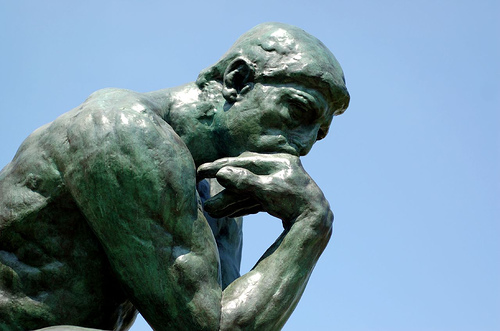Shakespeare's Unorthodox Biography by Diana Price Diana Price discusses why the Shakespeare Authorship Question is a legitimate academic subject. Her book, .Shakespeare's Unorthodox Biography: New ...
(Image by YouTube, Channel: Keir Cutler) Details DMCA
Like most people, from time to time I've come across the accusations that someone else really wrote Shakespeare's plays, and have dismissed them at face value, as nonsense. I've, of course, done so without any knowledge whatsoever of the whole question at hand (who was it that said "Ignorance is the natural state of the mind"?)
I always just assumed that the accusations were based on petty jealousies regarding the fact that anyone could possibly write such masterpieces. And so, in order to deprive the writer of the credit, this would put an end to the absurd claim that someone could actually do so... (Yeah, dumb. But the idea was so preposterous to me, that I didn't even stop to think about just how dumb my own explanation was.)
To this date, the idea that William Shakespeare did not write the plays or poems attributed to him, is still a very marginally held belief. Every year (we are told) a "major biography" appears by a generally highly regarded scholar, which simply proceeds to repeat what is already known and assumed about him, with perhaps a few new revelations or perspectives.
But, 101 years ago, a book appeared entitled, "Shakespeare" Identified, in Edward De Vere the Seventeenth Earl of Oxford", written by a man unfortunately named (under the circumstances) "J. Thomas Looney".
Here is a link to the full text of the book: Shakespeare Identified
I must confess that I have not read the book. In fact, I am only posting this piece because the person in the first video, Diana Price, author of, "Shakespeare's Unorthodox Biography: New Evidence of an Authorship Problem", was one of the most impressive "experts" in a completely mind blowing documentary I happened upon called, "Last Will and Testament" (free on Amazon Prime Video), and I could find very little else anywhere, on the internet or YouTube, about the Shakespeare authorship question. (But, just while researching this blurb, I did come across a PBS Documentary broadcast over 30 years ago called):
"The Shakespeare Mystery" (Sorry about the video quality)
The Shakespeare Mystery Frontline, April 19, 1989.
(Image by YouTube, Channel: NorthropN156) Details DMCA
There is also a major motion picture directed by Roland Emmerich ("Independence Day", "2012") called "Anonymous", which I just ordered from my local library, and which apparently was the inspiration behind "Last Will and Testament". Emmerich said that the motion picture took some liberties with certain facts (being a "based on" film), and he wanted a companion piece that didn't.
One more link I'd like to throw into the mix is a interview at DePaul University with the makers of "Last Will and Testament":
Last Will and Testament Shakespeare Documentary | DePaul VAS Discussion with the creators of the documentary Last Will and Testament Guests. Producer Aaron Boyd, Directors Lisa Wilson and Laura Wilson.
(Image by YouTube, Channel: DePaul Visiting Artists Series) Details DMCA
I can't really overstate the effect that just the "Last Will and Testament" film had on me. It is so well done, and the "alternative narrative" that Edward De Vere was the actual author, and Shakespeare merely a broker and "front man" for what is still almost universally personally attributed to him, seems to me, pretty ironclad. Beginning with the fact that there is not a single bit of evidence linking William Shakespeare's life to that of a writer, at all, let alone the author of the greatest works in the English language. And Shakespeare's life is quite well-documented, enough to have indicated something like that (there is no mention of any books or manuscripts in his "Will", even though 18 of his plays had yet to be produced at the time of his death, for instance). De Vere's life, on the other hand, runs perfectly parallel to the plays and abundantly explains why he, more than likely, did write them.
It's interesting that I came across all of this just shortly after posting the article about how the image of Shakespeare, right above where he is buried, is probably the most accurate likeness Shakespeare's Grave Effigy Believed to Be Definitive Likeness.
You know, the one where he really doesn't look anything like a writer....
(Note: You can view every article as one long page if you sign up as an Advocate Member, or higher).





